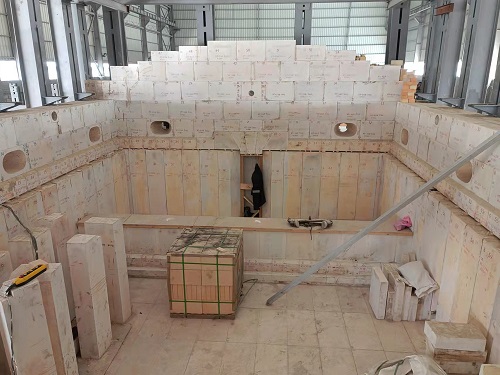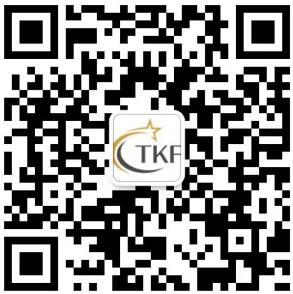TKF refractory bricks was successfully used in a famous glass kiln in Kazakhstan, and got highly comments on our quality and services.

Glass production is a high-temperature operation in which the molten glass erodes the refractory material of the kiln. Refractory material due to high temperature, flame and the influence of flying material, once eroded and damaged will affect the life of the kiln. If the glass liquid is contaminated, but also seriously affect the quality of glass, so the refractory materials used in glass kilns should have strict requirements.
Commonly used refractories for glass kiln are mainly divided into four categories: casting refractories, sintering refractories, unshaped refractories and heat-insulating refractories.
1、Fusion casting refractories have excellent resistance to glass liquid erosion and alkali vapor erosion, and they are the key part of furnace construction materials for the kiln. Fused casting refractories are mainly made by casting raw materials into shape after melting in electric furnace, and then annealed and mechanically processed, and its microstructure is more uniform than that of general refractories.
2、Sintered refractory is an important supporting refractory material used in a large number of melting kilns. Commonly used refractory bricks for glass furnace varieties are silica brick, alkaline brick, zircon brick, zirconium mullite brick, mullite brick, silica wire stone brick, high alumina brick, clay brick and so on.
3, indefinite refractory dosage currently accounts for only 3% to 4% of the kiln refractory dosage, but the age of the kiln is very important. General indefinite refractory material should be used with the same material as the stereotyped material. Therefore, the commonly used varieties and their corresponding shaped refractory material composition is equivalent.
4, heat-insulating refractories require small density, low thermal conductivity, good heat preservation effect, and at the same time, it has high refractoriness and mechanical strength, and does not react with the contact refractories. Commonly used heat-insulating refractories are lightweight heat-insulating bricks, heat-insulating boards and heat-insulating (lightweight) castables, heat-insulating coatings and refractory fibers.
